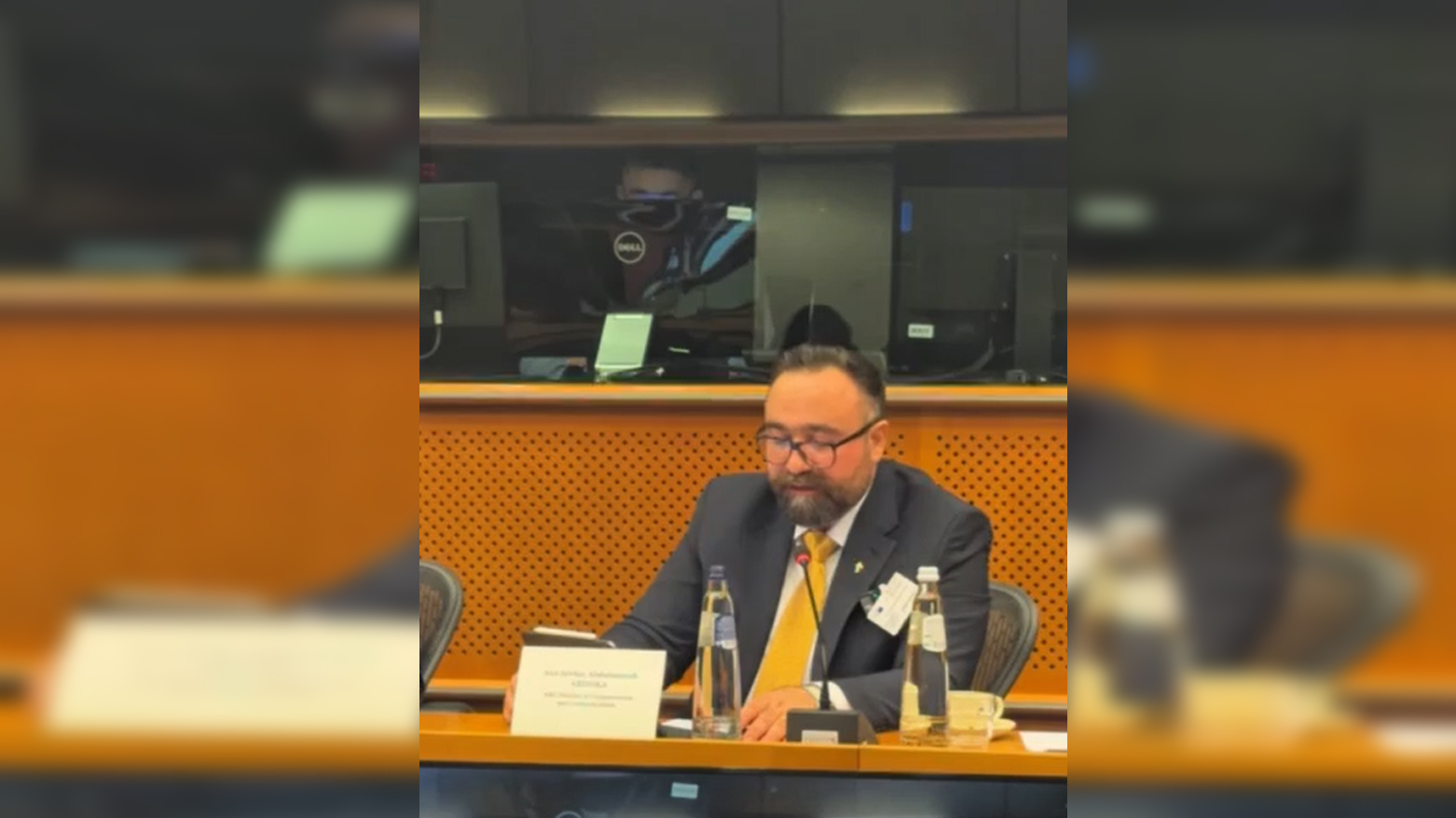KRG Minister Highlights Model of Religious Coexistence in Address to European Parliament
“President Barzani has always believed that the diversity of Kurdistan is its strength,” he said. “If one component of Kurdistan feels unsafe, then all of Kurdistan is unsafe.”

ERBIL (Kurdistan24) — Kurdistan Region Minister of Transport and Communications Ano Jawhar Abdoka addressed the European Parliament on Wednesday, calling on Europe to support the preservation of minority rights and coexistence in the Kurdistan Region and to help prevent forced migration.
Speaking in Brussels, Abdoka said he was representing not only the Kurdistan Regional Government (KRG) but also the diverse communities that have lived in Mesopotamia for millennia, including Chaldeans, Assyrians, Syriacs, Armenians, Yezidis, and Muslims. He emphasized that despite genocide, displacement, and terrorist attacks, these communities have chosen to remain rooted in their lands.
“The Kurdistan Region has become a unique model of peaceful coexistence in a Middle East often marked by division,” he said, noting that Christians, Yezidis, Muslims, and others have found safety in the region, even during the height of the ISIS war and despite ongoing drone and missile attacks on the Kurdistan Region.
Support for Christian and Minority Communities
Abdoka highlighted several initiatives undertaken by the KRG to preserve the cultural, linguistic, and religious heritage of Christian and minority communities:
Education: The KRG supports more than 50 Syriac-language schools, serving around 7,000 students and employing over 600 teachers.
Higher Education: Institutions such as the Catholic University of Erbil receive government support to promote academic and cultural development.
Housing: The Beth Hadiab Youth Housing Project in Ankawa offers affordable housing for young Christian families, launched under the directive of Prime Minister Masrour Barzani.
Employment: Micro-loans and small business support encourage youth to remain and build their futures at home.
Religious Freedom: The government has provided land for the construction of numerous churches and continues to support religious institutions and cultural heritage organizations.
He noted that the Syriac Heritage Museum and the General Directorate of Syriac Culture and Arts are among the cultural bodies receiving direct government backing.
Abdoka cited one example of success, quoting Bishop Dawod of the Syriac Orthodox Church: “No one from my parish has emigrated in the last five years.” The Minister said this reflected policies that “create hope instead of despair.”
Concerns Beyond the Kurdistan Region
However, Abdoka warned that Christian communities outside the Kurdistan Region, particularly in the Nineveh Plains, continue to face pressure from armed militias backed by external actors.
“These groups manipulate local governance, intimidate residents, and even control quota seats in Parliament,” he said, calling the situation “a threat to the entire idea of a pluralistic Iraq.”
Barzani’s Vision of Coexistence
Abdoka credited the long-standing approach of KRG leadership, particularly President Masoud Barzani.
“President Barzani has always believed that the diversity of Kurdistan is its strength,” he said. “If one component of Kurdistan feels unsafe, then all of Kurdistan is unsafe.”
Call for European Support
The Minister urged the European Union to partner with the Kurdistan Region in practical ways, including supporting education, cultural preservation initiatives, and economic development programs aimed at reducing migration pressures.
“Help us defend the dignity of staying,” he said. “Strengthen the pillars of stability that allow communities to remain in their homeland.”
A Message of Resilience
Abdoka concluded by describing the Kurdistan Region as a model of coexistence for the Middle East.
“The story of Kurdistan is not only one of survival, but of resilience and coexistence,” he said. “May this message inspire others to replace fear with friendship.”